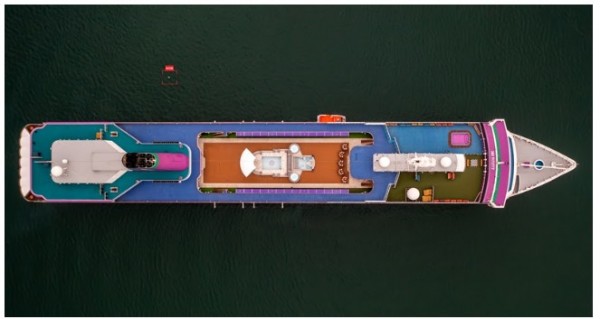Issue Cruise industry urged to act on MOBs
페이지 정보
작성자 최고관리자 댓글 0건 조회 35회 작성일 25-07-07 12:12본문
Cruise industry urged to act on MOBs
According to U.S. Coast Guard data, fewer than 19% of known MOB cases result in a successful recovery.
The recent fall of a young girl from the fourth deck of the Disney Dream cruise ship has renewed pressure on the cruise industry to adopt lifesaving man overboard (MOB) detection technology that experts say is now both available and proven.
The girl, who survived the June 29 incident, was spotted and quickly saved thanks to the quick actions of her father, who jumped in after her. But safety advocates warn that in most cases, no such witness is present and help often arrives far too late.
Matt Mitchell, a former Chief of the U.S. Coast Guard’s Office of Search and Rescue Policy, Founder and CEO of the International Association of Search and Rescue Coordinators (IASARC), and Director of Search and Rescue at Zelim, said: “Too many lives have been lost simply because no one knew someone had gone overboard until it was too late. I've coordinated hundreds of these cases, and in the vast majority, the notification came hours, sometimes days after the person was last seen. That makes an effective rescue nearly impossible.”
Although Disney Dream had a man overboard alerting system aboard, ensuring the alarm was raised a rescue boat launched quickly, one passenger aboard the vessel at time of the incident, Laura Amador, told CBS News: “The ship was moving quickly, so quicky, it’s crazy how quickly the people became tiny dots in the sea, and then you lost sight of them.”
According to U.S. Coast Guard data, fewer than 19% of known MOB cases result in a successful recovery. This, despite rules mandating that cruise ships integrate technology that can be used to detect passengers and track who have fallen overboard.
“Cutting-edge detection systems can alert the bridge within seconds of a person going overboard, and some can even track the individual in the water until they’re safely recovered,” Mitchell said. “This technology exists today.”
Despite the technological progress, most cruise operators have yet to install these systems.
“When the Cruise Vessel Security and Safety Act (CVSSA) of 2010 was enacted, the U.S. Coast Guard issued a 2011 policy letter advising its sector commanders not to enforce the MOB provision until suitable technology became commercially available. Fourteen years later, that policy remains in place”, he said.
“Now that ZOE technology is available and field-proven, there’s no excuse not to act. We’re no longer talking about ideas or prototypes. These systems work, they’re deployable, they have been Type Approved, and they can save lives.”
While US federal enforcement has yet to catch up, Mitchell said the cruise industry doesn’t need to wait for regulators.
“This is an opportunity for cruise lines to show leadership,” he said. “The next time someone falls overboard, will the ship report an unknown time and location, or will it report an immediate alert, live tracking, and a successful recovery? That decision is in the hands of the operators.”
■ Contact: Zelim www.zelim.com













